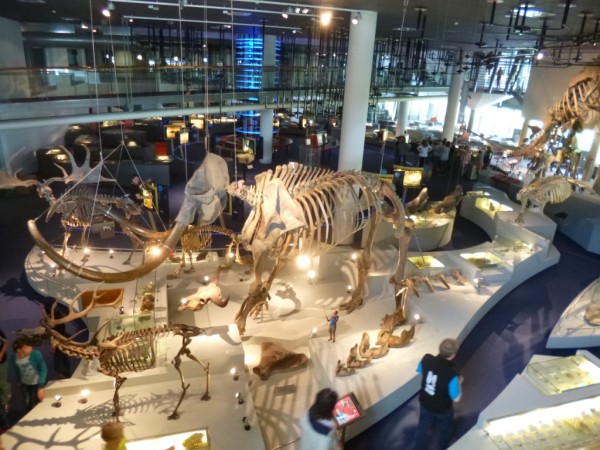In a previous post, Interpretive Empathy, I started to explore the issue of treating visitors as “guests”, and what assumptions underlie such a definition. Alli Burness has posted a piece in response, in which she discusses the role of a feeling of belonging in the context of a guest-host relationship. This has made me think a little more about the guest-host dynamic and what it means for museums.
I should place this guest-host discussion in some sociocultural context, as the way we perceive being guests or hosts will depend on our cultural attitudes. Despite our reputation for being laid back and welcoming, studies have shown that compared to some countries, Australians are quite reluctant to invite guests into their homes – particularly people they don’t know well. I remember it being drummed into me during my during my childhood that when visiting friends I had to be a “good” guest – which, among other things, meant that I should not “wear out my welcome”. This shows how in Australian culture, being a guest can be fraught with trepidation. Hosts are assumed to be hosting you under sufferance. Thus, as a guest you must tread carefully, avoiding inadvertently flouting unspoken rules or norms of behaviour. This anxiety of being in unfamiliar territory can be amplified if you perceive your host to be one of your social “betters” in some way shape or form (and despite what they say, Australia isn’t a classless society and there is an unspoken social hierarchy).
Compare this trepidation surrounding visiting someone new to visiting a family member or close friend. The anxiety about unspoken rules is not there, the “welcome” is sufficiently robust to be never “worn out”, and you don’t feel like anyone’s going to judge you on the basis of any behavioural faux pas.
And this brings me back to Alli’s idea of belonging – there are obviously different flavours of guest-host relationship. Familiarity is a big factor – if you’ve visited hundreds of museums before, then you’re likely to feel more comfortable irrespective of how well that museum does their “welcome”. But what if you’re less familiar? Creating that sense of belonging – coupled with a willingness to share – might be the key ingredient to a guest-host relationship that really works.

Hi Regan – thanks for highlighting the cultural differences aspect in the guest-host relationship. Of course Italian hospitality is different to Australian, it’s easy to be sucked in by warm open hosts offering lots of food!
My experience of feeling belonging as a guest really pivoted around an emotional connection to a museum (albeit vicariously). If you feel a strong positive emotion, a connection with the physical context in which that emotion occurred is inevitable. It’s like a part of you was formed in place, so a sense of belonging arises from that.
I’ve writen about space for emotions in museums before, (http://museuminabottle.com/2013/04/29/reacting-to-objects/) I think there could be more of this. Can or should emotions be systematically used to create a sense of belonging in visitors?
It’s certainly got me thinking about the term ‘visitor’. That term (as well as guest, client etc) has a lack of belonging intrinsic to its meaning. How to overcome this? In addition to familiarity, a sense of belonging involves perception of safety, leads to confidence and likelihood to participate and engage in an environment. Can we reverse engineer belonging and provide the elements to encourage this feeling in visitors? In mulling this over, I keep thinking about Nina Simon’s couches… http://museumtwo.blogspot.com/2013/06/great-participatory-processes-are-open.html
Thanks for the comment Alli. As it happens, I touch upon the role of emotions in the way we engage (or not) with environments in a paper being published later in the year. I’ll post a link when it’s out!